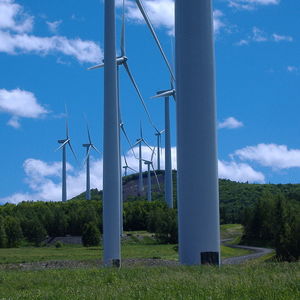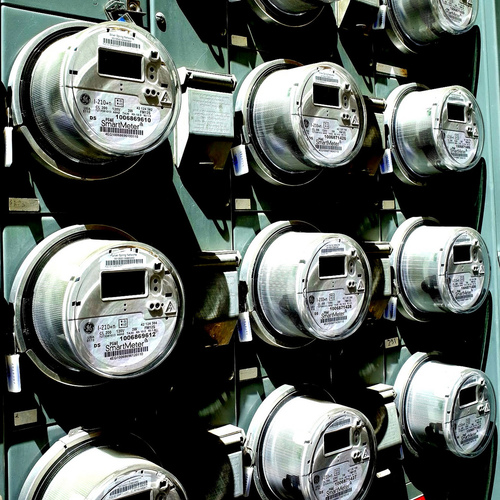
Last November, something unprecedented occurred in the State of Maine. Well, almost. A grassroots coalition of legislators, engineers, climate scientists, and others, known as Pine Tree Power, put forth a ballot initiative, known as Question 3, that would have made Maine the first U.S. state to have a statewide consumer-owned electric utility. In so doing, it would have allowed a newly established Pine Tree Power Company to legally wrest control of the grid from Maine’s two investor-owned utilities, Central Maine Power (CMP) and Versant, and put oversight in the hands of a nonprofit with elected board members. CMP and Versant, it’s worth noting, both ranked close to the bottom of a 2022 J.D. Power customer satisfaction survey, and haven’t improved much since.
Predictably, the referendum was voted down. The opposition was incredibly well funded, with CMP’s and Versant’s parent companies, Spain’s Iberdrola Group, and Canada’s ENMAX Corporation, respectively, spending close to $40 million to defeat the effort. The PAC group Our Power, meanwhile, managed to raise about $1 million through small donations in support of the referendum. At the ballot, it was defeated by a margin of 69.74% to 30.26% of the vote. “We were outspent 37 to 1. And it’s not like CMP and Versant were so much better at raising money. They didn’t raise money, they had an expense account,” says Lucy Hochschartner, the deputy campaign manager for Pine Tree Power.
“The right job”
While this attempt at creating what amounts to a statewide energy democracy didn’t come to pass, there are signs of hope.
For starters, consumer-owned utilities (COUs) are hardly a novel concept. In fact, roughly 30% of the U.S. population is served by municipal utilities that are owned by towns, cities, or rural cooperatives. Maine alone has 10 of them spread throughout the state, from Kennebunk to Calais. The formation of COUs in the first half of the 20th century, in fact, was an innovative solution to a common problem: investor-owned utilities had no incentive to power rural areas because there was no profit in it. (Maine is the second most rural state in the country.)
Weekly Newsletter
Get building science and energy efficiency advice, plus special offers, in your inbox.
Noteworthy examples abound, serving communities large and small, urban and rural, from the Sacramento Municipal Utility District (SMUD) in California to Austin Energy in Texas to the Eastern Maine Electric Cooperative. And in San Diego, a grassroots effort called Power San Diego announced its intentions late last year to replace San Diego Gas & Electric with a publicly owned electric utility. Provided enough signatures are gathered, the ballot initiative will go to a vote this November. But the standard bearer, to date, is Nebraska, where in 1933 the state legislature passed statutes to govern a collection of public power districts, and in the ensuing decade all 42 of the state’s investor-owned utilities were taken over by those public districts.
The data bear out: by and large, customer satisfaction and grid reliability rank higher, and costs are lower among those served by COUs. (Nebraska ranks #1 overall in grid reliability.) Still, such takeovers are logistically difficult and politically fraught, as evidenced by Pine Tree Power’s unique but doomed attempt to take a proven municipal model and translate it on a statewide scale.
CMP’s and Versant’s customers tell them they’re doing a horrible job, says Hochschartner, “but the more accurate thing to say is, they don’t have the right job. An energy company’s job is to provide [customers] with affordable, reliable power. Whereas an investor-owned utility’s job is to make money for its shareholders.”
Losing the battle
The question of whether consumers should own their power has been around for as long as electricity itself has been a commodity. Clearly, in 2024, the investor model has the upper hand through market share. “Large corporations have a fiduciary responsibility to maximize profits for their shareholders, end of sentence, end of book,” says Jonathan Fulford, a carpenter, Our Power co-founder, and former Democratic candidate for U.S. Congress in Maine’s second congressional district. The same question of ownership still resonates but has now been compounded by a more pressing concern, that of climate change.
“Our climate crisis will only continue to get worse, and our utilities are going to continue to fail,” says Johanna Bozuwa, executive director of The Climate and Community Project, a climate policy think tank. “If you’re thinking about public ownership of the grid, it isn’t only a climate demand, it’s an economic justice demand. It’s an investment in public health and economic security.”
Interestingly, the dueling sides in this debate weren’t exactly making opposing arguments on the same issue. The utilities and their supporters—a list that included Governor Mills, who vetoed legislation to create the Pine Tree Power Company back in 2021, calling it “a patchwork of political promises”—boldly claimed that if passed, Pine Tree Power “would create too much uncertainty” and result in “lengthy court battles.” That first point is dubious, the second amounts to extortion. Mills’ office further claimed it would add “a layer of bureaucracy and politics and partisanship over the existing structure of CMP and Versant.” Boiled down, this collective argument comes down to, don’t rock the boat.
Pine Tree Power’s position, possibly to its detriment, is a bit more substantive. “CMP and Versant are monopolies,” Hochschartner says. “They have a guaranteed allowable rate of return of 8 to 12 percent on any capital investments they make to the grid. When you switch to a consumer model, yes, the ownership is changing, but it also changes the way the utility is financed. Rather than using shareholder equity, you’re financing with a revenue bond with lower interest rates, which are between 3 to 5 percent.” Even if you’re using the same amount of money to harden the grid, it goes further because of the new financing model, she says. “All that reliability work can happen more cheaply.”
Winning the war
This is not a David and Goliath story, because in this case, Goliath won. The national network of consumer owned utilities is vast and growing, so it seems inevitable that this model will eventually supplant corporate for-profit models on a statewide scale. But where? For its part, Maine—with its rural expanses, modest population, and unreliable grid—remains a suitable proving ground for such an effort. Other states may take up the mantle as well, including Arizona, California, Hawaii, Michigan, New York, and Tennessee, among others, if not at the state level then on a scale that expands the network of COUs to more municipalities.
“This space has grown dramatically,” Bozuwa says. She attributes growing interest in COUs to larger utility companies’ “inability to move on climate goals,” and further believes that consumer models represent an under-appreciated and “under-evaluated” strategy for waging climate action.
Hochschartner points out that COUs are the only utilities to date that have managed to deliver 100% clean, renewable energy to their customers. This fact alone should be positioned front and center in any future campaigns that propose placing public utilities back into the hands of the public. Those campaigns, for the most part, will remain grassroots efforts.
With precedent to draw from, the evidence supports the notion that local control of utilities yields lower prices and greater reliability, without altering the market rate value of the power being delivered. It also enables those who get elected stewards of the utility to stretch those dollars further because of financing that benefits the consumer first and foremost.
As elections go, a disparity of assets doomed Pine Tree Power from the start. “We had everything we needed to win, but the ability to get our message out there,” Fulford says. (Our Power did not purchase any TV ads.) On the contrary, “[CMP and Versant] were very effective at spreading doubt and fear.” He continues: “We got sucked into defending all these claims that this was going to be too expensive, too complicated, that it’s going to take too long, it would threaten the labor unions. None of these things are true … it’s a great power to not have to be truthful in your messaging.”
_______________________________________________________________________
Justin R. Wolf is a Maine-based writer who covers green building trends and energy policy.















One Comment
Our governor has defined the right wing of the democratic party in her long career in Maine politics. And even before the crushing amount of $ spent by Iberdrola, CMP is a very powerful force in Maine and politicians cross them at their peril.
The "pro" side made some mistakes too. There was a lot of focus on the foreign ownership, which to my mind was a distraction and fed into pre-existing nativist streaks in the state.
Log in or create an account to post a comment.
Sign up Log in